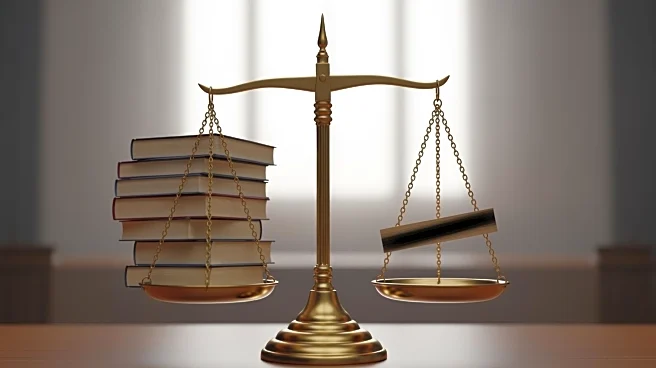What's Happening?
Following a decision by the Fifth Circuit Court of Appeals, which dismissed free speech claims in a Texas public library book removal case, plaintiffs in Leila Green Little et al. v. Llano County are seeking
a review from the Supreme Court. The case centers on First Amendment protections in public libraries, specifically the right to receive information and whether library collections constitute 'government speech.' The outcome could set a precedent affecting public libraries, school classrooms, and higher education institutions. Various publishers and advocacy groups, including the Big Five publishers, PEN America, and the American Library Association, have filed petitions urging the Supreme Court to hear the case. They argue that the case is crucial for maintaining free speech and preventing censorship in library collections.
Why It's Important?
The case has significant implications for First Amendment rights and the autonomy of public libraries in the United States. If the Supreme Court decides to hear the case, it could clarify the extent to which government entities can control library collections, potentially impacting how libraries across the country select and remove books. This decision could affect authors, publishers, and educators by influencing what materials are available to the public. The case also highlights ongoing debates about censorship and the role of libraries as bastions of free inquiry and expression. A ruling in favor of the plaintiffs could reinforce protections against censorship, while a ruling for the defendants might embolden further book removals based on content or viewpoint.
What's Next?
The Supreme Court's decision on whether to take up the case will be closely watched by stakeholders in the publishing and education sectors. If the court agrees to hear the case, it could lead to a landmark decision on the balance between government control and free speech in public institutions. Meanwhile, other related cases are pending in various circuit courts, which could also influence the legal landscape regarding book bans and censorship. The outcome of these cases may provide additional context or precedents for the Supreme Court's consideration.
Beyond the Headlines
The case raises broader questions about the role of public institutions in curating information and the potential for government overreach in determining what constitutes acceptable content. It also touches on ethical considerations regarding the suppression of diverse viewpoints and the impact on marginalized communities whose voices may be disproportionately affected by book bans. The decision could influence future legislative efforts to address censorship and free speech in educational and public settings.










